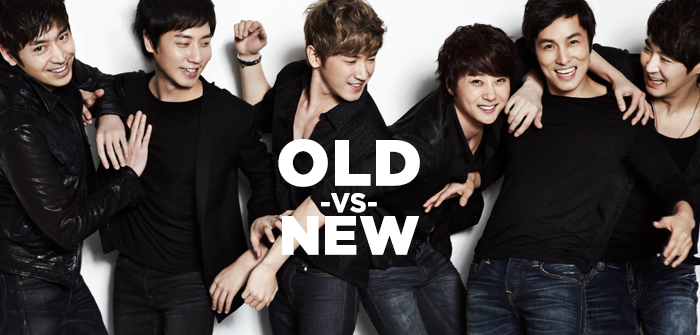The past year has been a true rainbow of concepts and styles in the ever changing world of kpop. One thing that has stood out however, is the comebacks of what are considered “old” groups. The past year has seen the return of favourites from the early 2000’s like super group G.O.D., who held several sold-out concerts around Korea, and ballad duet Fly to the Sky with Hwanhee and Brian.
Popularly nicknamed sextet “The Legendary” SHINHWA returned in March for their 3rd group comeback since 2008, when they took a break for solo work and military services. Sniper swiped the charts and music shows alike and SHINHWA ended promotions with a whopping 10 wins, a new record for the group who celebrated their 17 year anniversary with a triple crown.
At the same time the number of rookie groups debuting every year is at an all time high. Some see immediate success and others struggle to stay afloat in the huge and deep kpop ocean.
It seems the lifespan of the average kpop group is increasing and decreasing all at once. SHINHWA and G.O.D. served as a new phenomenon, showing that with hard work and determination, a kpop idol group can last past the 5-year crisis and the two groups with members in their 30’s and 40’s even found a new, wider audience, gaining fans in their 40’s and down to the usual 15-16-17 year old fans found in most younger groups fandoms. But at the same time younger groups are fighting to make it, with even hyper popular groups like EXO losing members by the minute and U-Kiss bringing in replacement members for each new comeback.
It is my opinion that a lot of fan clubs reflect and mirror their respective groups. While new and young fans add to and make a fandom bigger, they learn their ways and behaviours from other people in the fandom, who again have picked it up from the idol groups themselves, wanting to make them proud and taking their words to heart.
A lot of new and young kpop groups have even younger fans, down to the ages of 10 and 11 year-olds. With kpop becoming global and spreading like wildfire, a lot of new fans will seek towards new groups, wanting to support and help them grow from the beginning. Both young groups and their young and new fans don’t have the same experience and knowledge as older generations hold, and they don’t have someone to tell them how to react, behave and respond to incidents and happenings in the fandom and outside of it.
Meanwhile, older groups have been through years and years of this dance, and have picked up ways to deal with and how to get the best results over an issue.
The black ocean in 2008 is a classic example. Then new rookie groups included SNSD, and at the Dream Concert, fandoms cooperated to create a black ocean, showing their distaste for the young girl group. Triple S, Cassiopeia and ELF were among the fandoms, and it is to this day something which a lot of fandoms are ashamed of being a part of. Triple S, who were for a long time known to be a kind and reserved fandom were scolded by SS501 group members, who made it clear that this kind of behaviour was expected to be above them, and who apoligised on behalf of their fans to SNSD. I, as a Triple S of more recent years, know and am ashamed of my fandom for what it did back then, but I am proud of SS501 members for scolding those fans and standing up to what had happened.
It seems to be a trend that the biggest fandoms rage wars against each other, and for fans of one group to jump on any opportunity to drag another group or a fandom through the dirt over trivial matters. However, this is not new behaviour, and has been happening for years. As a group and a fandom matures, these things become less important, and focus shifts towards doing what’s best for each other. Most SHINHWA Changjo’s will know, along with fans of other old groups, it is what helps a fandom, and respectively an idol group last for as long as possible.
SHINHWA member Kim Dong Wan has a very famous quote within the fandom, which is repeated many a time.
SHINHWA is not responsible for your lives.
The now calm and mature fandom hasn’t always been this way, and SHINHWA has on numerous occasions spoken sternly to their fans, reminding them that some things are more important in life rather than winning first place or beating another group and fandom. Doing something in the name of a group or even a fandom taints that name, and reflects poorly upon the group.
With recent events and fandom wars – not mentioning any names – it might be an accurate observation to make that a lack of communication between fandoms and their respective groups becomes more clear with newly debuted and younger groups. Whether that be to preserve a bigger part of the fandom and avoiding losing anyone, or if it’s simply a matter of not being bothered, a lot of groups are building a poor image from their fans behaviour. Safe to say, they have a thing or two to learn from their seniors on how to create a happy bond between fans and a group, ensuring longevity and loyal fans.





